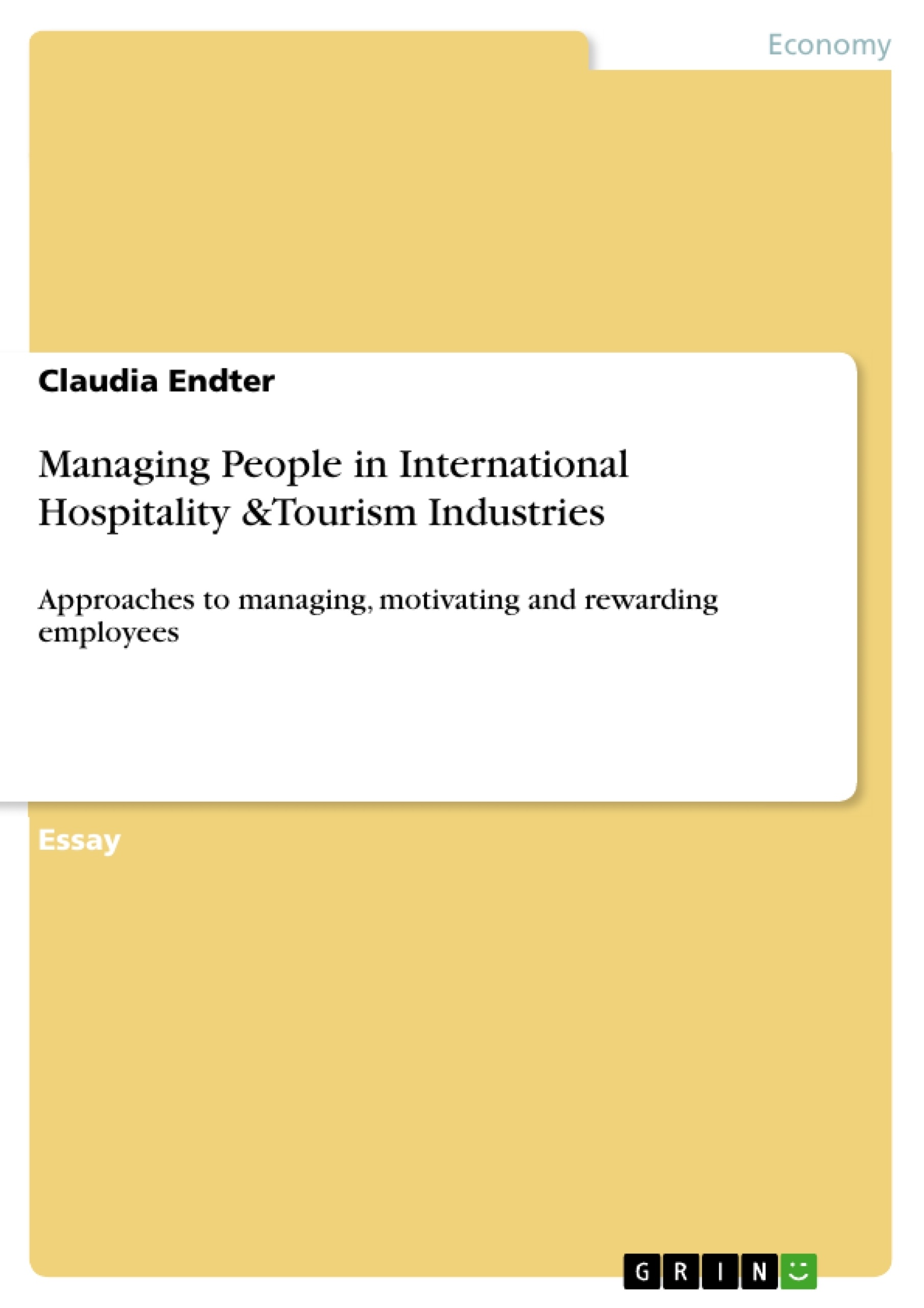How to motivate staff? What is the best way to get out the most out of staff? What encourages putting effort into work? And what is the link between motivation and good job performance? The question of what people expect or want from work is one of the most discussed topics in human resource management and a wide range of authors have tried to find the best fitting solution, which combines extrinsic and intrinsic methods. While content theories engage with the question of people´s needs, process theories deal with human behaviour such as work performance, effort and satisfaction. But what is motivation all about? When it comes to analyse approaches to managing, motivating and rewarding employees in the international hospitality and tourism industry, the term motivation needs to be defined as: ‘…the direction and persistence of action. It is concerned with why people choose a particular course of action in preference to others, and why they continue with a chosen action, …’ (Krech et al., 1962, in Mullins, 2009, p. 250) So the core question is, do people work at their best if they are motivated? Or what is the connection between motivation and performance?
Inhaltsverzeichnis (Table of Contents)
- How to motivate staff?
- Motivation Theories
- Scientific Management Approach
- Theory X and Theory Y
- Hawthorne Studies
- Content Theories
- Maslow's Hierarchy of Needs
- Herzberg's Two-Factor Theory
- Process Theories
- Expectancy Theory
- Equity Theory
- Best Practice and Best Fit
- Orientation Theory
- Job Evaluation
- Reward Management
- Appraisals
- Performance Related Pay
Zielsetzung und Themenschwerpunkte (Objectives and Key Themes)
This essay aims to analyze approaches to managing, motivating, and rewarding employees in the international hospitality and tourism industry, drawing on relevant literature and published research.- The importance of motivation in the hospitality and tourism industry
- Various theories of motivation, including content and process theories
- The relationship between motivation and job performance
- The role of reward management and performance-related pay
- The implications of different HRM approaches for employee motivation
Zusammenfassung der Kapitel (Chapter Summaries)
This essay begins by defining motivation and highlighting its importance in the context of the hospitality and tourism industry. The essay then explores key motivation theories, starting with Frederick Taylor's Scientific Management approach and Douglas McGregor's Theory X and Theory Y. The essay also considers the Hawthorne Studies and the work of Elton Mayo, which emphasized the importance of social and psychological factors in employee motivation. The essay then moves on to content theories of motivation, such as Maslow's Hierarchy of Needs and Herzberg's Two-Factor Theory. These theories highlight the importance of both extrinsic and intrinsic motivators, suggesting that different types of needs require different approaches to motivation. The essay further delves into process theories, including the Expectancy Theory and the Equity Theory. These theories focus on the cognitive processes involved in motivation and how individuals perceive their work environment. Finally, the essay discusses different approaches to human resource management (HRM), including the Best Practice approach, the Best Fit approach, and the Orientation Theory. The essay explores how these approaches can be applied to motivate employees in the hospitality and tourism industry, considering factors such as job evaluation, reward management, and performance-related pay.Schlüsselwörter (Keywords)
The essay focuses on the keywords and concepts of motivation, employee management, reward management, human resource management, hospitality and tourism industry, content and process theories, extrinsic and intrinsic motivation, Best Practice, Best Fit, and Orientation Theory.Frequently Asked Questions
What is the definition of motivation in this context?
Motivation is defined as the direction and persistence of action, explaining why people choose certain courses of action and continue with them.
Which motivation theories are discussed in the essay?
The essay covers Scientific Management, Theory X and Y, Maslow's Hierarchy of Needs, Herzberg's Two-Factor Theory, and process theories like Expectancy and Equity Theory.
What is the difference between content and process theories?
Content theories focus on specific human needs, while process theories examine the cognitive mechanisms and behaviors behind work performance and satisfaction.
How does reward management impact the hospitality industry?
It explores how performance-related pay and job evaluation can be used to align employee efforts with the service quality demands of the tourism sector.
What are "Theory X" and "Theory Y"?
Proposed by Douglas McGregor, Theory X assumes employees are inherently lazy and need control, while Theory Y assumes they are self-motivated and seek responsibility.
- Citation du texte
- B.A. Claudia Endter (Auteur), 2010, Managing People in International Hospitality &Tourism Industries, Munich, GRIN Verlag, https://www.grin.com/document/167482



